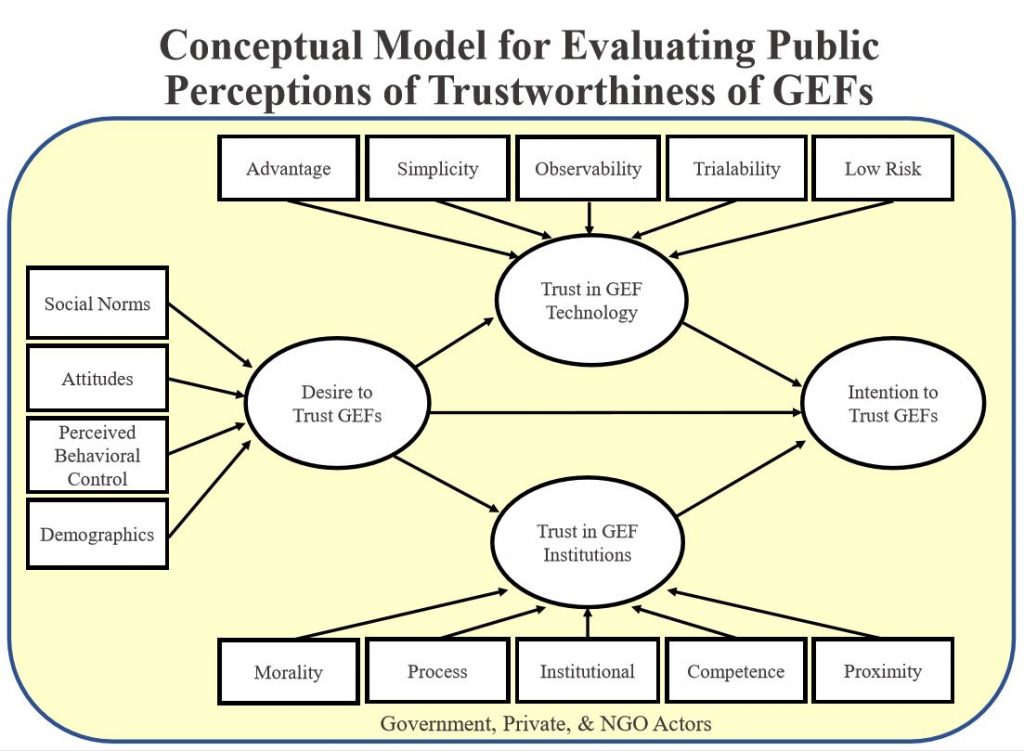The agricultural and food sector is poised to benefit from the advent of gene editing techniques. However, gene edited foods (GEFs) will likely create controversy toward transgenic biotechnologies, and the ad hoc nature of current biotech regulations. Regulatory oversight and governance will probably extend beyond traditional regulations to include voluntary standards and rules. However, it is unclear what combination of governance oversight will be viewed as trustworthy by different publics. Within this context, the identification of emergent gaps in public trust is a pre-requisite to ensuring the successful introduction of socially legitimate, scientifically robust, and sustainable GEFs.
Our long-term goal is to identify key inducements and impediments to public trust in GEFs and their governance. To achieve this goal, we will address the following objectives concerning GEFs.
- Conduct a literature review to identify existing regulations and gaps and extra regulatory governance instruments to address these gaps.
- Conduct in-depth interviews with key stakeholders, a framing analysis of GEF messages, and a national public survey, to identify key gaps in public trust and determine the major factors that induce or impede trust.
- Conduct a workshop to engage key stakeholders and the public in a participatory appraisal of gaps in trust of GEFs and evaluate appropriate governance mechanisms.
The expected outcome is to provide a set of recommendations for governance tools and strategies that will address gaps in public trust related to GEFs. This project will be active over the course of four years between 2018 and 2021.

